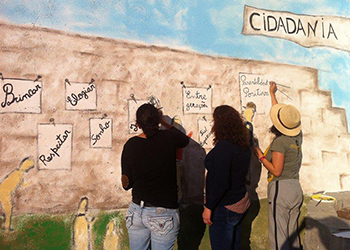Cidadania Ativa Programme benefited more than 80 thousand people

On January 25, at 10:00, at its closing event, the Cidadania Ativa Programme (2013-2016), funded by the European Economic Area Financial Mechanism (EEA Grants) and managed by the Calouste Gulbenkian Foundation, will present the outcome of its endeavours to strengthen civil society in Portugal. 113 projects were supported over four years, involving about 170 NGOs and many other organizations from both Portugal and the Donor Countries of the European Economic Area (Norway, Iceland and Liechtenstein). Between 2013 and 2016, seven million euros were distributed in grants that directly benefited the lives of more than 80,000 people throughout the country.
An independent evaluation study will be presented on the results of the Programme, whose projects were aimed at strengthening democratic values and human rights, building the capacity of NGOs, increasing civil society influence over public policies, and promoting the employability and inclusion of young people.
The book “No matter how dark the night is … tomorrow will be another day” will also be presented at the event. Journalist Inês Rapazote and photographer José Carlos Carvalho portrayed the impact of the programme – through eleven of the supported projects – on people’s lives. The authors will share their views with the audience, which will also receive a copy. This work has a preface by Isabel Mota, where the Trustee states: “The Calouste Gulbenkian Foundation has always considered that supporting the qualification of non-governmental organizations is a priority, necessary to ensure that civil society is active, autonomous and capable of bringing together the efforts of all sectors of Society in the defence of common causes.”
Soon after, four of the NGOs which have promoted projects supported by the programme will also present their views on its impact, and debate them with the audience.
The event will also include a conference on Human Rights and Democracy in Today’s Europe, by the Acting Representative for Europe of the UN High Commissioner for Human Rights, Paul d’Auchamp.
